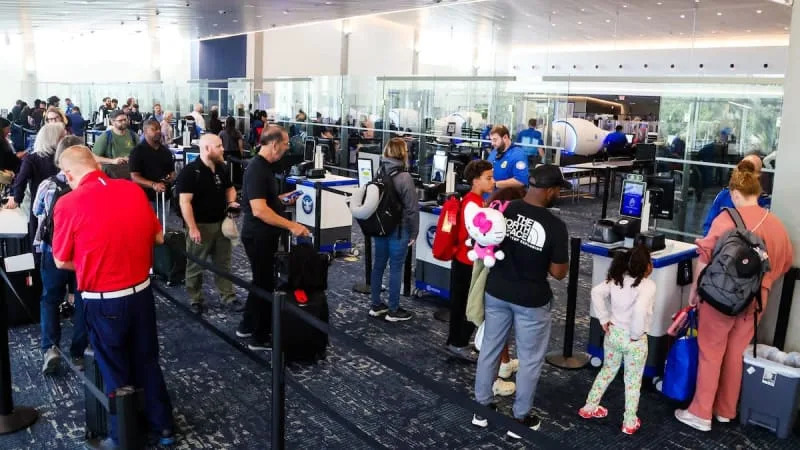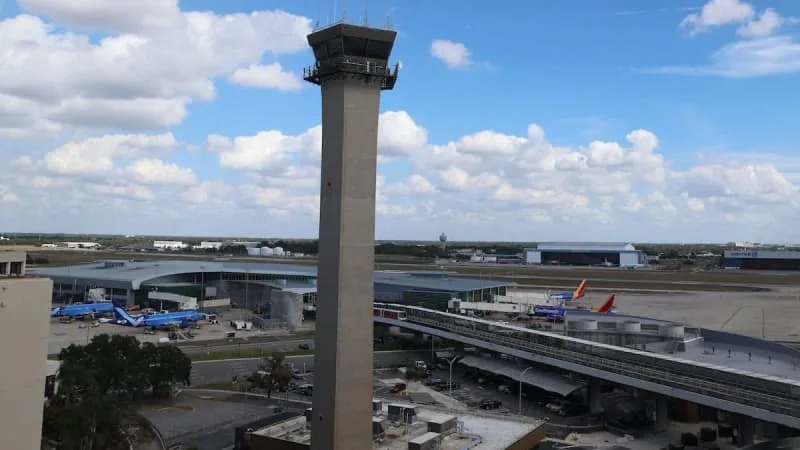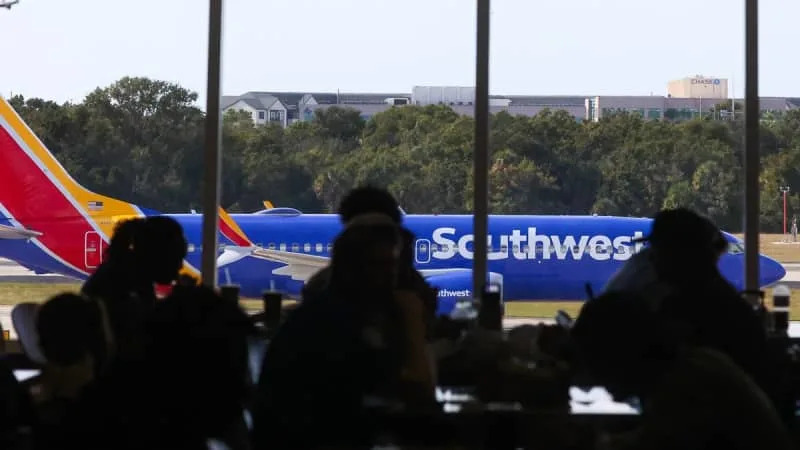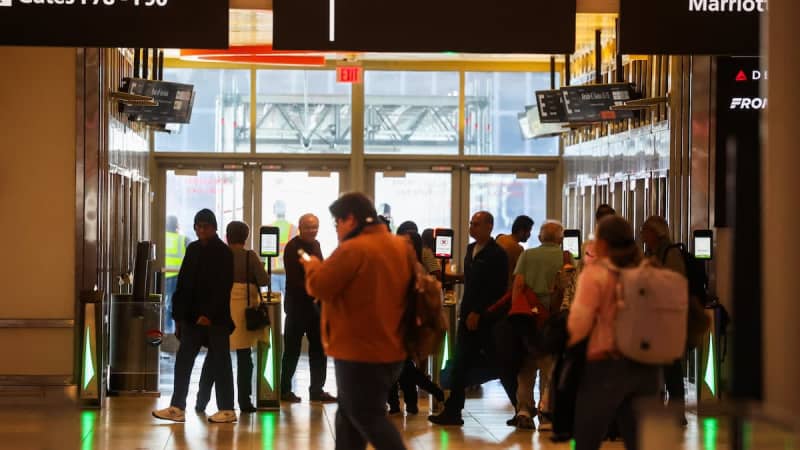Tampa International Airport is among those nationwide seeing cuts to flights because of the federal government shutdown.
The cancellations — a 10% overall reduction in flights nationwide — were issued as an emergency order Thursday by the U.S. Department of Transportation and Federal Aviation Administration.
They will come in phases. The first was a 4% cut that took effect on Friday. Total flight cancellations will ramp up to 6% by Nov. 11, 8% by Nov. 13, and 10% by Nov. 14, according to the U.S. Department of Transportation.
The order does not require a reduction in international flights and airline carriers can choose which flights are canceled.

They target 40 of the busiest airports in the country, including four in Florida: Tampa, Miami, Fort Lauderdale-Hollywood and Orlando. Major disruptions as of Friday across the state’s busiest airports appear to be minimal.
In Tampa, as of Friday afternoon, only 18 flights had been canceled, with 61 delays out of 530 total flights.
Tampa airport officials said there were no other major issues reported.
In Orlando, the projected number of cancellations related to the emergency order is 29, according to the airport.
”There has been minimal impact to airport operations,” said Angela Starke, a spokesperson for the Orlando airport.

In Miami, 11 domestic departures were canceled, 4% of the airport’s daily domestic departures. Otherwise, the Transportation Security Administration and flight operations remain normal, said Miami-Dade airport spokesperson Greg Chin.
But more cuts could be on the way if the government shutdown, now in its 38th day, persists.
U.S. Department of Transportation Sec. Sean Duffy said Friday that reductions of up to 20% could happen as a proactive step if the shutdown continues.
He said the agency is monitoring data about the air space from pilots and air traffic controllers.
“The numbers are going in the wrong direction,” he said. “The response is to take pressure out of the system.”
Ultimately, the airlines are responsible for adapting flight schedules amid the cuts, a pivot that will cost them millions of dollars, Duffy said.
Airport officials said travelers should first look to their airline for answers about the status of flights and information about refunds if passengers choose not to fly.


